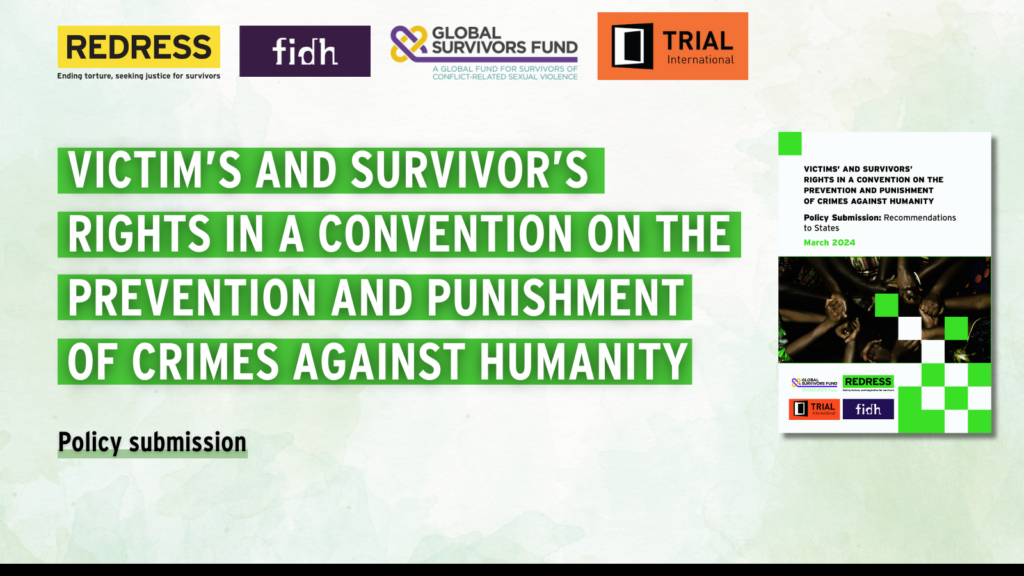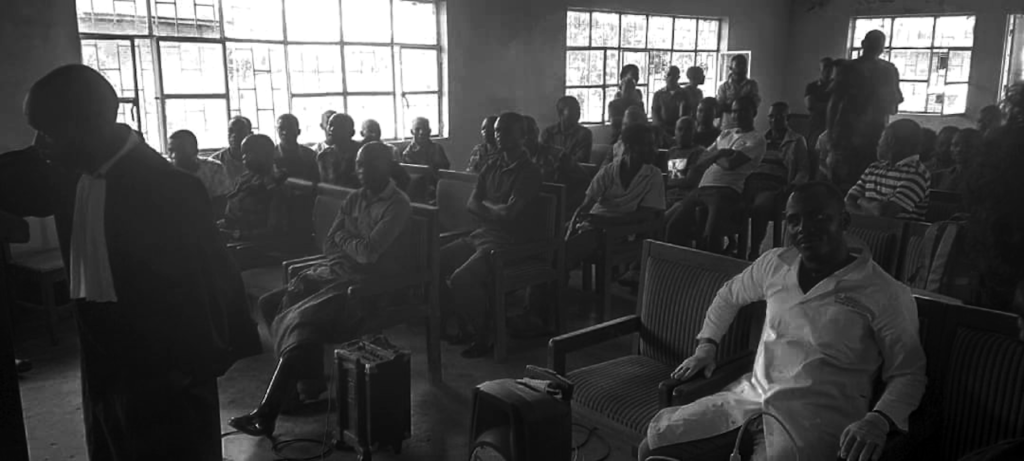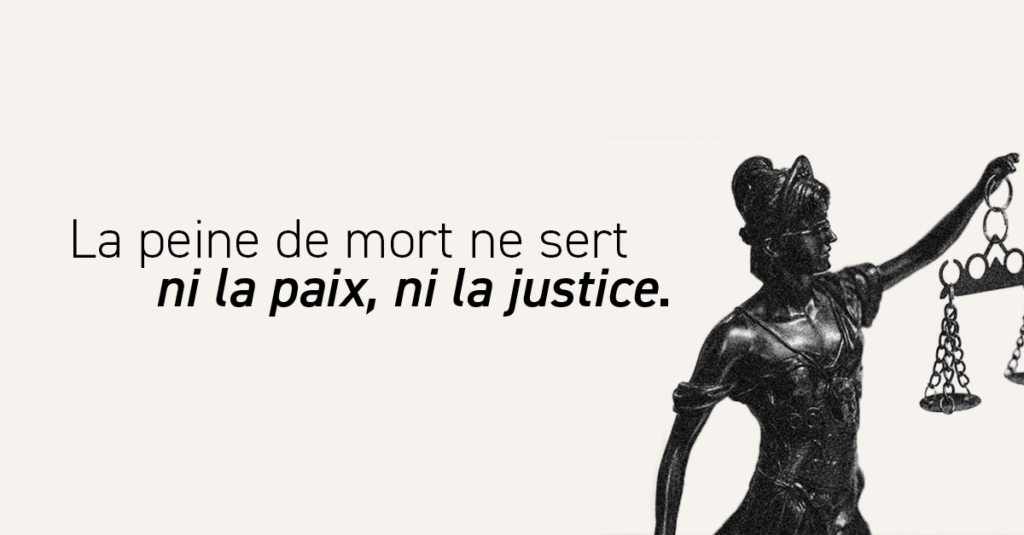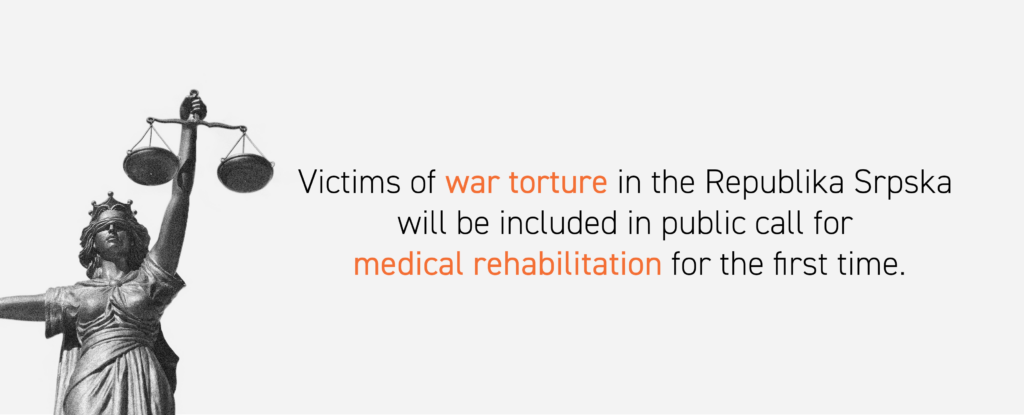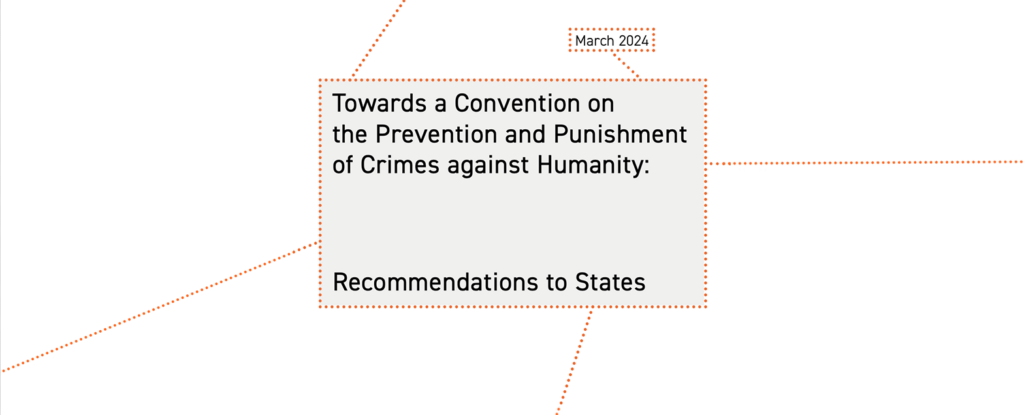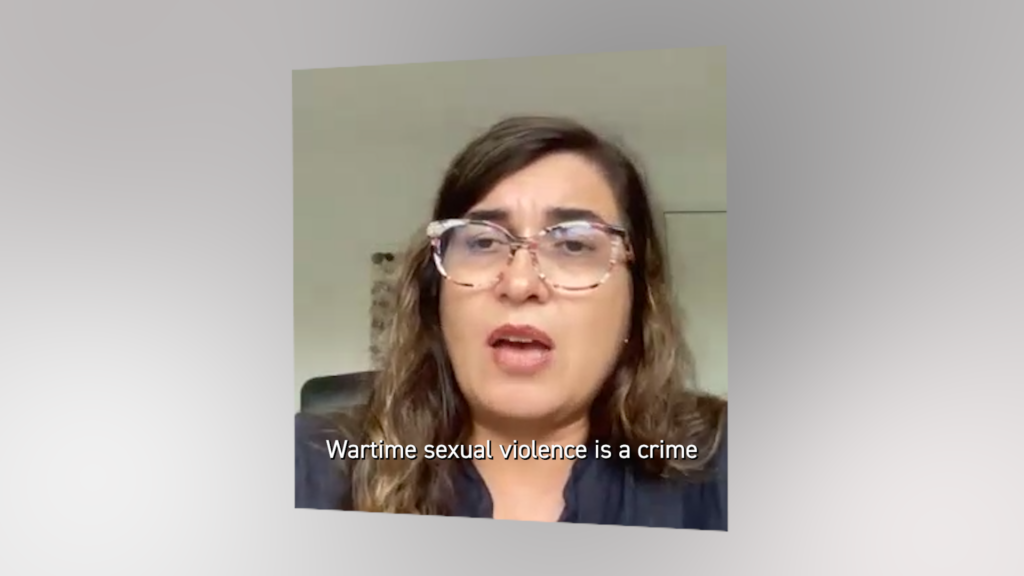“Today many people around me know TRIAL”
Portraits of volunteers #6
Since 2018, twelve volunteers have taken on the specific mission of translating TRIAL International’s website news. To thank them for their invaluable commitment, the “Portraits of volunteers” series gives them the floor. This time, Apolline Bonfils explains why TRIAL stood out above other volunteering opportunities.

“I have been volunteering at TRIAL since 2016. Back then, I was coming back from a one-year university exchange in Ireland and was looking for opportunities to get involved, preferably while practicing my English. But the organizations I came across did not suit me, nor the mission they offered. Volunteering abroad was not an option because I was still studying.
At this time, I regularly consulted TRIAL International’s documentation for my course in international criminal law and international humanitarian law. One day, as I was going through its website, I saw an ad to recruit volunteers. I applied immediately, because I really admired TRIAL’s work, and was starting to know the organization quite well.
Translation was the ideal form of volunteering because I had a good command of legal terminology and it allowed me to practice my English. Additionally, thanks to the assigned translations I stayed informed on issues of which I sometimes wasn’t even aware.”
A passion for human rights
“Although I enjoyed my course in law, I hadn’t quite found my path … until I went on a university exchange at Trinity College, in Ireland. There, I studied human rights law under different angles. That year was a turning point for me: I had found my passion!
When I came back, I started a course in international law, with a specialization in the law of post-conflict State rebuilding. That is when I joined TRIAL.
Since then, I have developed an expertise on the Middle East and North Africa, and have lived in Tunisia, Lebanon and Germany. Now I work for an NGO based in Strasbourg (France) working with the Council of Europe on cooperation projects in Mediterranean countries.
Reaching out to a wider audience
“The aspect of TRIAL I enjoy the most is the “legal vulgarization” it undertakes. By summarizing cases, it makes them accessible to a wider audience and gives them greater resonance. If I share a legal decision on social media, very few people will take an interest because it will be long and complex. If I publish an article written by TRIAL, on the other hand, it will be accessible, well-explained and to-the-point. People with no legal knowledge often share these articles or ask me about it. In my opinion, it is a way of giving greater visibility to human rights violations.
Translating such content is also a challenge: in the balancing act between maintaining accuracy and readability, word-by-word translation is out of question. Thanks to this exercise, my writing style and vocabulary have improved.”
A mutual benefit
“TRIAL’s staff members who assign us translations are very attentive to both the organization’s interests and ours as volunteers. For instance, I was able to indicate my preferred topics so translations relating to them could be assigned to me in priority. Likewise, when I am going through a busy period I can let the staff know so they will approach other translators.
Finally, I think this volunteering experience is a professional asset. From the outside, long-term engagement is a sign of trustworthiness. And when I mention TRIAL, many people around me know the organization and the extent of its commitment!”

